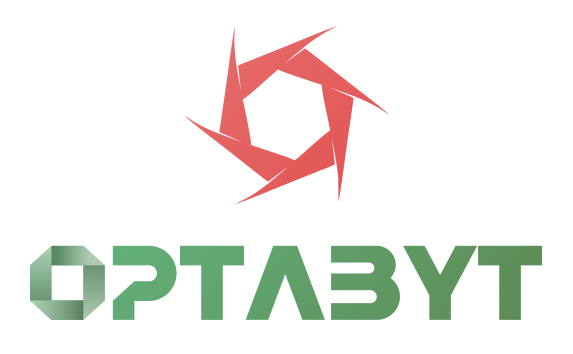
Table of Contents
ToggleProject Manager Skills: The Complete Guide for 2025
Table of Contents
In today’s fast-paced business environment, project managers play a crucial role in ensuring the successful execution of projects. From planning and resource allocation to risk management and stakeholder communication, project managers must demonstrate a diverse set of skills that extend far beyond traditional management practices. The ability to adapt, lead, and deliver results makes project manager skills one of the most sought-after competencies in global industries.
This article explores the core skills, advanced capabilities, and future-oriented competencies that define successful project managers in 2025.
Understanding the Importance of Project Manager Skills
The success of any project depends not only on the tools and methodologies applied but also on the skills of the project manager leading it. These skills enable them to:
Align project goals with organizational strategy
Handle complex stakeholder expectations
Navigate risks and constraints
Deliver measurable value within deadlines and budgets
For organizations, hiring a project manager with the right skills ensures higher productivity, improved collaboration, and reduced project failure rates.
Core Project Manager Skills Every Professional Needs
Leadership and People Management
Effective project managers must inspire and lead teams. Leadership involves not just giving directions but motivating people, building trust, and encouraging accountability. A skilled project manager understands team dynamics, resolves conflicts, and fosters collaboration.
Communication Skills
Strong communication is the backbone of project success. Project managers must convey ideas clearly to stakeholders, negotiate with vendors, and provide transparent updates to executives. Both verbal and written communication matter, including presentation and active listening skills.
Time Management
Meeting deadlines is critical in project management. Skills such as prioritization, scheduling, and task delegation ensure that projects progress smoothly without unnecessary delays.
Risk Management
Every project carries risks—technical, financial, or operational. Project managers must identify risks early, assess their impact, and design mitigation strategies. Proactive risk management prevents small issues from becoming major setbacks.
Problem-Solving and Critical Thinking
When challenges arise, the ability to think critically and develop innovative solutions separates good project managers from exceptional ones. Analytical thinking, data-driven decision-making, and creativity are all key to resolving roadblocks effectively.
Technical and Methodological Skills
Knowledge of Project Management Methodologies
Modern project managers must be well-versed in methodologies like Agile, Scrum, Waterfall, and PRINCE2. Depending on the industry and project type, knowing which approach to apply enhances efficiency and results.
Budgeting and Financial Management
Managing project budgets requires accuracy and accountability. Project managers must understand cost estimation, financial forecasting, and cost-benefit analysis to prevent overruns and maximize ROI.
Proficiency in Project Management Tools
Tools like Microsoft Project, Jira, Asana, and Trello have become essential. Mastery of these platforms allows managers to monitor progress, allocate resources, and keep stakeholders informed in real time.
Soft Skills That Make a Difference
Emotional Intelligence
High emotional intelligence (EQ) helps project managers empathize with team members, handle stress, and create positive work environments. EQ-driven leadership enhances motivation and productivity.
Negotiation and Conflict Resolution
Negotiating contracts, resolving disputes, and balancing competing interests require tact and diplomacy. Skilled project managers achieve win-win outcomes without damaging relationships.
Adaptability and Flexibility
Projects often shift due to market changes, client demands, or unexpected challenges. The ability to adapt and pivot quickly is vital for sustaining momentum.
Future-Oriented Project Manager Skills for 2025
Data Analytics and Digital Literacy
Data-driven project management is becoming the norm. Project managers must understand analytics, dashboards, and predictive models to make informed decisions.
Remote and Hybrid Team Management
With global teams and hybrid workplaces, managing virtual collaboration tools, time zone differences, and digital communication has become an essential skill.
AI and Automation Awareness
Artificial intelligence is transforming project management through automated reporting, predictive risk analysis, and workflow optimization. Skilled project managers will leverage AI tools rather than fear them.
Sustainability and Ethical Management
Stakeholders now expect projects to align with sustainability goals and ethical standards. Project managers need skills in sustainable resource allocation and corporate responsibility.
Entity-Based Context of Project Manager Skills
When discussing project manager skills, several entities naturally interconnect:
Professional Certifications: PMP, PRINCE2, Agile Certified Practitioner (ACP), and Certified ScrumMaster (CSM).
Global Bodies: Project Management Institute (PMI), Association for Project Management (APM).
Industries: IT, construction, healthcare, finance, and engineering.
Recognizing these entities and relationships provides a deeper semantic understanding of the term “project manager skills.”
FAQs on Project Manager Skills
1. What are the most important project manager skills?
Leadership, communication, risk management, and adaptability.
2. Do project managers need technical skills?
Yes, knowledge of methodologies, tools, and financial management is essential.
3. Can soft skills be more valuable than technical skills?
In many cases, yes—communication, leadership, and emotional intelligence drive project success.
4. Is a PMP certification enough to prove project manager skills?
No, certifications help but practical experience and soft skills are equally critical.
5. What new skills are needed for project managers in 2025?
AI literacy, data analytics, and hybrid team management.
6. Can project manager skills be learned without formal education?
Yes, through experience, mentorship, and online courses.
7. Are project manager skills industry-specific?
Core skills remain the same, but industries like IT or construction require specialized knowledge.
8. How do project managers improve communication skills?
Through active listening, clear writing, and stakeholder engagement training.
9. Why is risk management a vital skill?
Because it prevents project delays, cost overruns, and failures.
10. How does emotional intelligence help project managers?
It strengthens relationships, improves morale, and reduces workplace conflict.
Final Thoughts
The demand for project manager skills continues to grow as businesses adapt to digital transformation, globalization, and evolving stakeholder expectations. A successful project manager blends leadership, technical expertise, soft skills, and future-oriented capabilities to deliver results.
Whether you’re an aspiring project manager or an experienced professional, continuously upgrading your skill set is essential to stay relevant in today’s competitive landscape.
👉 To explore more insights on project management, visit @Optabyt.com
